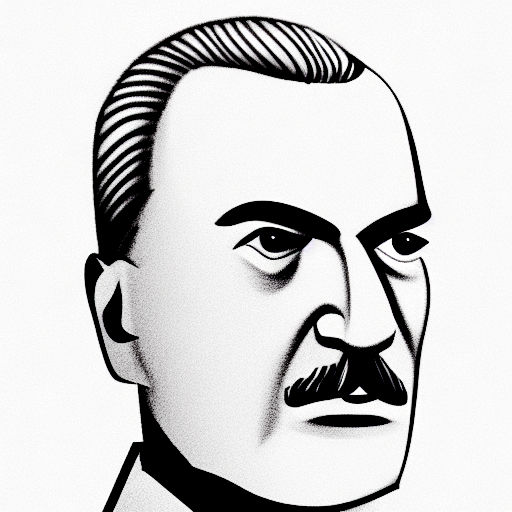Kemal Atatürk (or alternatively written as Kamâl Atatürk, Mustafa Kemal Pasha until 1934, commonly referred to as Mustafa Kemal Atatürk; c. 1881 – 10 November 1938) was a Turkish field marshal, revolutionary statesman, author, and the founding father of the Republic of Turkey, serving as its first president from 1923 until his death in 1938. He undertook sweeping progressive reforms, which modernized Turkey into a secular, industrializing nation. Ideologically a secularist and nationalist, his policies and socio-political theories became known as Kemalism. Due to his military and political accomplishments, Atatürk is regarded as one of the most important political leaders of the 20th century.Atatürk came to prominence for his role in securing the Ottoman Turkish victory at the Battle of Gallipoli (1915) during World War I. Following the defeat and dissolution of the Ottoman Empire, he led the Turkish National Movement, which resisted mainland Turkey's partition among the victorious Allied powers. Establishing a provisional government in the present-day Turkish capital Ankara (known in English at the time as Angora), he defeated the forces sent by the Allies, thus emerging victorious from what was later referred to as the Turkish War of Independence. He subsequently proceeded to abolish the decrepit Ottoman Empire and proclaimed the foundation of the Turkish Republic in its place.
As the president of the newly formed Turkish Republic, Atatürk initiated a rigorous program of political, economic, and cultural reforms with the ultimate aim of building a modern, progressive and secular nation-state. He made primary education free and compulsory, opening thousands of new schools all over the country. He also introduced the Latin-based Turkish alphabet, replacing the old Ottoman Turkish alphabet. Turkish women received equal civil and political rights during Atatürk's presidency. In particular, women were given voting rights in local elections by Act no. 1580 on 3 April 1930 and a few years later, in 1934, full universal suffrage.His government carried out a policy of Turkification, trying to create a homogeneous, unified and above all secular nation. Under Atatürk, the few surviving indigenous minorities were pressured to speak Turkish in public; non-Turkish toponyms and last names of minorities had to be changed to Turkish renditions. The Turkish Parliament granted him the surname Atatürk in 1934, which means "Father of the Turks", in recognition of the role he played in building the modern Turkish Republic. He died on 10 November 1938 at Dolmabahçe Palace in Istanbul, at the age of 57; he was succeeded as president by his long-time Prime Minister İsmet İnönü and was honored with a state funeral.
In 1981, the centennial of Atatürk's birth, his memory was honoured by the United Nations and UNESCO, which declared it The Atatürk Year in the World and adopted the Resolution on the Atatürk Centennial, describing him as "the leader of the first struggle given against colonialism and imperialism" and a "remarkable promoter of the sense of understanding between peoples and durable peace between the nations of the world and that he worked all his life for the development of harmony and cooperation between peoples without distinction".
Sol turns thousands of years of human wisdom from the world’s spiritual traditions into a totally unique personality profile. To get your own profile, check compatibility with friends and much more, download the Sol App today.
Some of their strengths
Mustafa Kemal Atatürk has many admirable traits.
Based on spiritual traditions from around the world, they are someone who can be described as Energetic, Loyal, Creative, Imaginative, Independent, Brave, and Honest.
Smart and Hardworking
According to Mysticism’s Astrology tradition, Mustafa Kemal Atatürk is someone who is a smart, hardworking, reliable, and loyal person, who is detail-oriented and orderly, but also generous and optimistic. A person who is ambitious and motivated.
Active and Precise
Based on Daoism’s Ba-Zi or ‘Chinese Zodiac’ tradition, people who know Mustafa Kemal Atatürk well know them as someone who can be tough, active, and sharp, like a sword.
Active and Ambitious
According to Hinduism’s Jyotisha or ‘Vedic Astrology’ tradition, many would also describe Mustafa Kemal Atatürk as someone who is active, ambitious, bold, and courageous.
A person who is driven and organized, is wise with money, who knows how to tell a good story, likes physical activity, and who loves learning.
Communicative and Intelligent
Based on the Mayan Tzolk’in or ‘Mayan Astrology’ tradition, Mustafa Kemal Atatürk is someone who tends to have a desire to communicate with others, either verbally, through written form, or otherwise, and to have a knack for understanding art, beauty, and aesthetics.
They are also someone who is creative, expressive, and insightful, and who has a pioneering spirit with self-determination and natural artistic expression.
Patient and Perseverent
According to Judaism’s Kabbalah tradition, Mustafa Kemal Atatürk tends to be someone who is patient, faithful, hardworking and persistent, and who wants to achieve a lot in life. Who tends to be rather private when it comes to expressing feelings, enjoys being independent and self-sufficient, and who is not afraid of any obstacle.
Some of Mustafa Kemal Atatürk's challenges
While Mustafa Kemal Atatürk has many strengths, nobody is perfect. They also have some challenging traits they need to manage.
For example, Mustafa Kemal Atatürk can be Stubborn, Indecisive, Unrealistic, Impulsive, Suspicious, Short-tempered, and Aggressive.
Suspicious and Stubborn
One of Mustafa Kemal Atatürk's key challenges is that they are someone who can be suspicious and stubborn.
Mustafa Kemal Atatürk must also exercise caution as they can be excessive and unrealistic, and can have difficulty dealing with responsibility, authority, or criticism.
Impulsive and Aggressive
Mustafa Kemal Atatürk is someone who can be impulsive, aggressive, and confrontational, can have difficulty listening to others, be moody and high strung, have conflict with authority figures, be too judgmental of others, and who can be overindulgent and extravagant.
Callous and Stubborn
Finally, Mustafa Kemal Atatürk also can come across as cold and unemotional, be too dismissive of others' opinions, and be overly suspicious, selfish and crafty.

